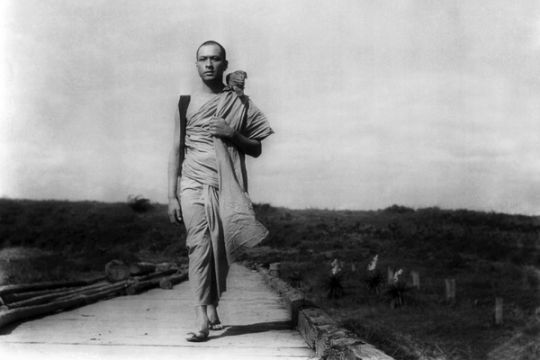Synopsis
A rhapsodic celebration of song, a brutal condemnation of wartime mentality, and a lyrical statement of hope within darkness; even amongst the riches of 1950s’ Japanese cinema,
The Burmese Harp, stands as one of the finest achievements of its era. At the close of World War II, a Japanese army regiment in Burma surrenders to the British. Private Mizushima is sent on a lone mission to persuade a trapped Japanese battalion to surrender also. When the outcome is a failure, he disguises himself in the robes of a Buddhist monk in hope of temporary anonymity as he journeys across the landscape – but he underestimates the power of his assumed role. A visually extraordinary and deeply moving vision of horror, necessity, and redemption in the aftermath of war,
Ichikawa’s breakthrough film is one of the great humanitarian affirmations of the cinema.

